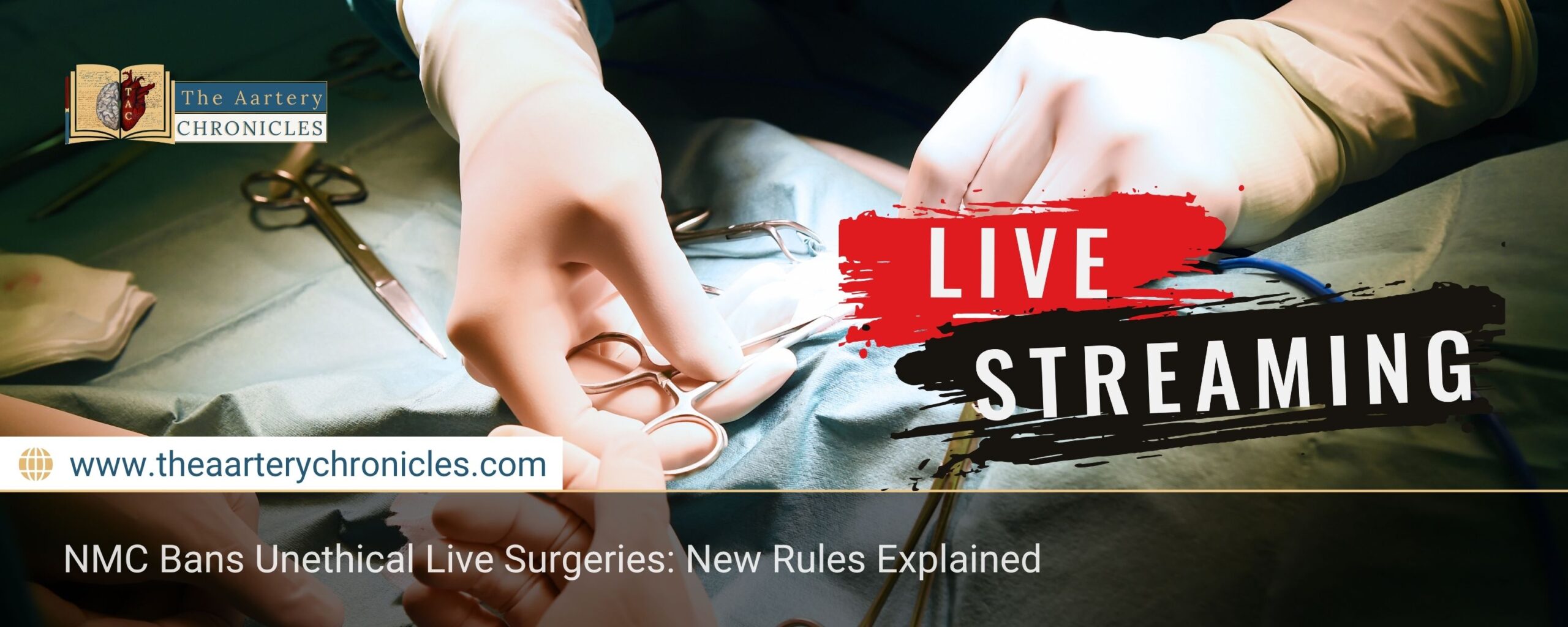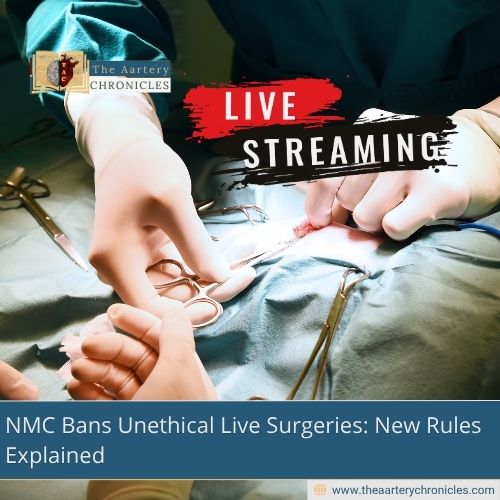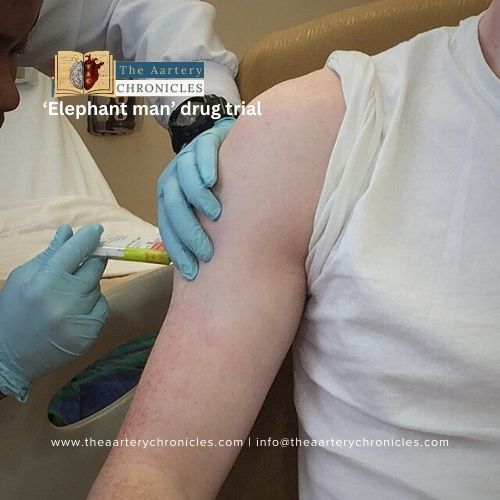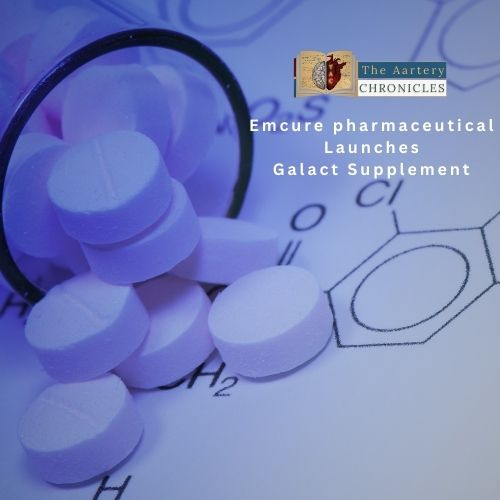

NMC Bans Unethical Live Surgeries: New Rules Explained
Summary: The National Medical Commission (NMC) has put out some new rules about live surgical broadcasts. These come after the Supreme Court raised concerns about patients being exploited, so the guidelines focus on making sure everything’s done ethically. They spell out who can perform and organize these surgeries and put a big emphasis on safety, honesty, and making sure patients give their clear consent. Now, the NMC is encouraging doctors to use recorded surgeries or practice with simulations instead of doing live demos, especially in high-risk cases.
Live Surgery Guidelines by NMC: Ethical Reform or Necessary Shift?
In response to a Supreme Court plea raising ethical concerns, the Ethics and Medical Registration Board (EMRB) of the National Medical Commission (NMC) has rolled out new guidelines for how live surgeries should be conducted and broadcast. The petition claimed that private hospitals were using patients as props during live broadcasts for conferences, prioritising profit and promotion over patient safety.
Background: The Supreme Court Steps In
In 2023, a Delhi-based ophthalmologist petitioned the Supreme Court, questioning the legality and ethics of live surgical broadcasts. The case was heard by Chief Justice D. Y. Chandrachud along with Justices J. B. Pardiwala and Manoj Misra. The doctor’s plea pointed out that these surgeries, often watched by hundreds in conference halls, could put patient safety at risk and seem driven more by commercial interests than medical ethics.
In response, the Medical Council of India (NMC) asked for public opinions and set up a special committee to come up with rules and regulations for these kinds of broadcasts.
Key Concerns Highlighted by NMC
The Commission acknowledged that while live surgeries offer experiential learning, they also present several risks and ethical issues:
- Lack of strong evidence that live surgeries are more educational than pre-recorded videos.
- Surgeons may be distracted due to audience interaction.
- Patient safety, anonymity, and comfort can be compromised.
- Live procedures can lead to legal and reputational risks.
- Commercial exploitation overshadows medical ethics.
- Surgeons might showcase skills or endorse products during procedures.
- Several global and Indian associations have banned live surgeries due to performance pressure on surgeons.
Why Recorded Videos Are Preferable
Nowadays, NMC is leaning more toward using pre-recorded surgeries, cadaver-based wet labs, and simulation-based training instead of doing live procedures. These approaches help avoid putting patients at risk and make it easier to analyse, edit, and label everything in detail, making the learning process clearer and more effective.
Who Can Organize or Perform Live Surgeries?
According to the new guidelines:
Organizers/Supervisors:
- Must have indemnity insurance.
- Should be from the same specialty as the procedure.
- Require permission from State Medical Council if inviting foreign surgeons.
Surgeons:
- Only Registered Medical Practitioners (RMPs) or Foreign Medical Practitioners (FMPs) with 5+ years of experience post-specialisation can perform.
- FMPs need temporary permission from EMRB/NMC.
Where and How Can Live Surgeries Be Conducted?
Location Criteria:
- Must be conducted in accredited hospitals with complete OT setup, ICU, diagnostics, and emergency services.
- The setup must be pre-inspected and approved.
- If standards aren’t met, only recorded videos can be used.
Patient Selection:
- Exclude high-risk cases or patients with incomplete workups.
- Patients must be medically fit with no financial incentives
- Insurance coverage must be provided, and any complications should be managed free of cost.
Informed Consent is a Must
The surgeon must:
- Clearly explain the purpose, risks, and privacy
- Ensure voluntary consent with the right to withdraw anytime.
- Maintain confidentiality throughout the broadcast.
During the Surgery
- No direct audience interaction is allowed.
- Commentary should be minimal and only by the moderator.
- High-risk procedures must not be broadcast live.
Ethical & Legal Safeguards
- Patients must not bear any costs, including implants or drugs.
- Surgeons must follow up for at least 24 hours post-procedure.
- Every live surgery must follow standard operative protocols.
Responsibilities Outlined
Organizer’s Role:
- Ensure safety, consent, and confidentiality.
- Obtain all regulatory approvals in advance.
Surgeon’s Role:
- Uphold ethical and professional standards.
- Avoid product endorsements or personal branding.
Need for Regulatory Oversight
- A central committee will monitor compliance.
- Professional associations must ensure non-commercial conduct.
- All unedited recordings must be archived for at least 2 years.
Exceptions and Final Note
The only exception to these rules is when live surgeries are performed for students or RMPs in institutions listed under the NMC Act, 2019.
Conclusion: Balancing Education with Ethics
The NMC’s new guidelines mark a pivotal step in protecting patients and preserving medical ethics. While live surgeries remain a learning tool, they must now meet strict ethical, safety, and procedural standards. The focus now shifts toward simulation-based education and recorded videos, ensuring that learning never comes at the cost of patient rights or safety.
Inputs from various media sources.

Dane
I am an MBBS graduate and a dedicated medical writer with a strong passion for deep research and psychology. I enjoy breaking down complex medical topics into engaging, easy-to-understand content, aiming to educate and inspire readers by exploring the fascinating connection between health, science, and the human mind.








